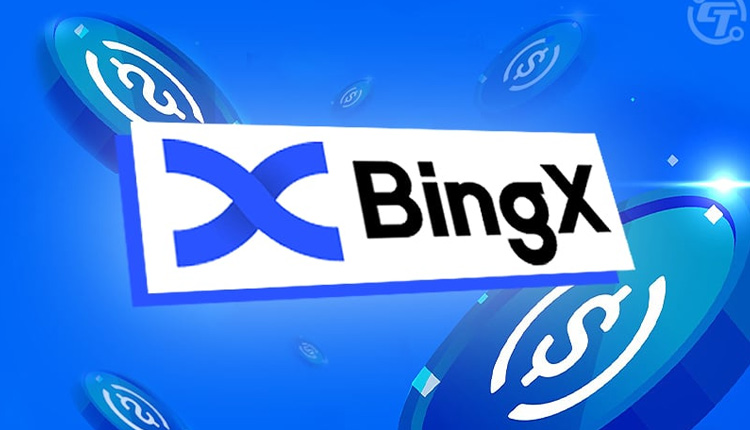
IBM Watson is a computer system created by IBM that utilizes artificial intelligence in order to answer questions, offer solutions and provide advice to businesses and individuals using natural language. With the utilization of AI technologies such as predictive analytics, machine learning and deep learning, this platform can help companies rapidly access the information they require. Additionally, it aids organizations in finding patterns in data, perceiving trends and uncovering new possibilities. Moreover, it breaks down intricate problems into less complicated pieces for faster solutions.
The data sources utilized by Watson come from internal corporate databases as well as publicly available sources like news articles and social media content. This combination of many different data types allows Watson to provide better answers to users’ queries than would be possible with just a single one. Additionally, its cloud-based architecture enables companies to constantly train the system on new datasets and make quick improvements within their own organization’s operational environment.
What does it do for businesses?
Watson helps businesses create and deliver solutions that are tailored to their individual needs based on data-driven insights. On top of this, Watson taps into its big database of global trends and forecasts that equip your team with all the latest happenings from across the world. As a result, companies can easily access more market knowledge, strategise better decisions as well as predict customer behaviour better.
Watson offers users a wide range of services ranging from A/B testing to advanced analytics and predictive modelling. This aids companies in analysing their current processes or strategies to optimize cost savings and add value. By leveraging Watson’s natural language processing capabilities, businesses can rapidly develop AI applications using APIs, libraries, bots etcetera. Thisnot only saves time but also minimizes the risks associated with manual development of artificial intelligence components.
Moreover, IBM Watson provides Natural Language Understanding (NLU) that helps businesses interpret complex conversations between customers and employees or any other combination using automated text analysis tools like sentiment analysis for quickly gathering feedback about products or services — allowing teams to adjust marketing plans in real-time accordingly. Furthermore, IBM’s suite of related cloud services enhance the experience when used together with NLU features such as speech recognition to identify patterns from voice interactions more accurately .
Ultimately IBM Watson could help transform many different types of processes within a business environment by analyzing relevant data points from various sources and offer improved solutions more efficiently than humans through machine learning capabilities —something traditional methods often come short on achieving due to its limited computing power in comparison with what cognitive systems have available today.
How does it work?
IBM Watson works with two main components: Natural Language Processing (NLP) and cognitive analysis. With NLP, Watson is able to interpret conversations with people, detect patterns in text or audio data files, recognize homonyms or synonymous phrases, identify context within written materials, and accurately understand even the most subtle nuances of language. Meanwhile its cognitive analysis helps it find solutions to problems based on what it reads or hears rather than needing directions from humans all the time. This powerful combination allows IBM Watson to go beyond acting as just an information source; it can now be used to turn raw data into actionable insights for business tasks such as making sense of customer feedback or gaining meaningful product recommendations from different market sources without needing manual input at every turn.
IBM Watson can be used in a variety of ways to help businesses extract deeper value from their data. For example, with its natural language capabilities, IBM Watson can autonomously exploit sentiment analyses from customer reviews or surveys to make better decisions about how products should be marketed or priced for maximum benefit. Another way IBM Watson has been applied recently is by helping organizations automate the tedious process of back-office document review associated with regulatory compliance or due diligence activities. Using natural language processing algorithms in conjunction with cognitive computing technologies like AI Agent Systems (AES), IBM Watson can sort through large amounts of often unstructured documents much more quickly than traditional methods while still effectively detecting relevant keywords in each document along the way—a vast improvement over manual sorting processes which are both slow and unreliable at best.
Overall, IBM’s revolutionary Watson technology offers businesses many significant ethical benefits compared to legacy solutions while reducing cost upfront and generating significantly increased return over time. Not only does utilizing AI enable faster decision-making processes through highly accurate analysis procedures but ultimately offers streamlined services that help shape competitive advantages for companies looking ahead into the future.
What companies use IBM Watson?
Companies in various industries are leveraging IBM Watson’s cognitive computing capabilities to gain insight from their data. IBM Watson is being used by companies from banking to healthcare – from predicting customer needs to optimizing decisions. Here are a few prominent examples:
Healthcare:
Abbott Laboratories has deployed IBM Watson for drug discovery research; Livongo uses it for tracking health conditions and Artiva Health Solutions employs it for patient engagement solutions.
Retail:
Dell, eBay, Lowe’s and Kohl’s use IBM Watson for customer service automation and product recommendations; Macy’s is using it to develop new shopping experiences; Walmart benefit from it through personalized product recommendations.
Media & Entertainment:
Turner Broadcasting System uses the technology to chart insights into customer behavior through predictive analytics and AT&T utilizes it to personalize customer chatbot conversations; Discovery Communications use Watson API as content recognition technology while Netflix relies on the automated voice-activated user interface with input quality verification provided by the system’s algorithms.
Travel Industry:
Marriott International and Hilton Worldwide both incorporate AI driven technologies such as virtual personalized travel agents powered by IBM Watson; FlyMilewise employs its language understanding services while Amadeus IT Group utilizes its data analysis capabilities.
Financial Services & Banking:
UBS Bank integrated Watson into their go-to-market process creating a cutting edge robo advisor empowered with natural language query interface capabilities allowing clients to manage their portfolios; American Express uses the technology for fraud detection tasks while CitiBank incorporated its customer service bots in a conversational AI platform integrated into its existing desktop website which allows customers to communicate via voice or text in order convert queries into actionable insights automatically humanizing otherwise mundane processes.
In conclusion, companies across industries globally have started leveraging IBM Watson’s cognitive computing abilities seeking out key insight from their data helping simplify decision-making processes or personalizing interactive experiences within customer engagements providing further optimization opportunities leading towards realizing true enterprise level ROI potentials.
How much does it cost to use IBM Watson?
The cost for companies to use IBM Watson varies depending on the specific capabilities or services deployed. For example, businesses may train and customize their own virtual assistant using the Watson Assistant service, which is priced on an annual subscription model based on the number of user interactions. Businesses also have access to IBM’s pre-built AI models through IBM Watson’s Machine Learning Platform as a Service (PaaS), and can opt either for pay-as-you-go pricing or flat monthly rates, depending on their data volume. In addition, developers can build or deploy applications powered by Watson services via an API subscription plan that is priced according to usage type and volume. Overall, the cost associated with investing in IBM Watson technology can be tailored to fit a company’s budget and operational needs, but will likely vary from one organization to another.











